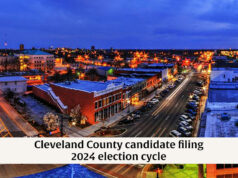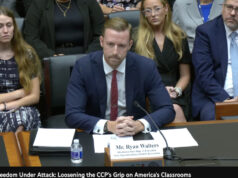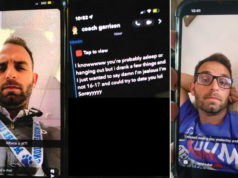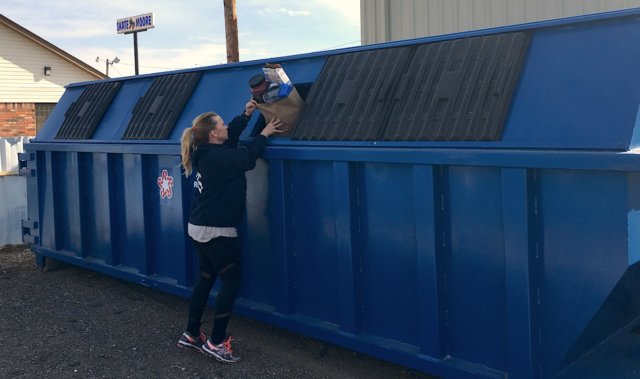
In recent years, citywide curbside recycling programs have taken off in the Oklahoma City metro area. Oklahoma City, Edmond, Midwest City, Mustang and Norman all offer the service for residential addresses.
Moore, part of the metro and the seventh largest city in Oklahoma, is one of the few area cities without a curbside recycling program.
“We went to the voters in November of 2016 to vote on a curbside recycling proposal, and it lost,” said Brooks Mitchell, Moore city manager.
Labeled Proposition 2, the proposal would have provided curbside recycling to residential customers of Moore every other week at a cost of $3 per month. With more than 21,500 people casting ballots, the proposal failed by only 329 votes.
Implementation questioned for curbside recycling
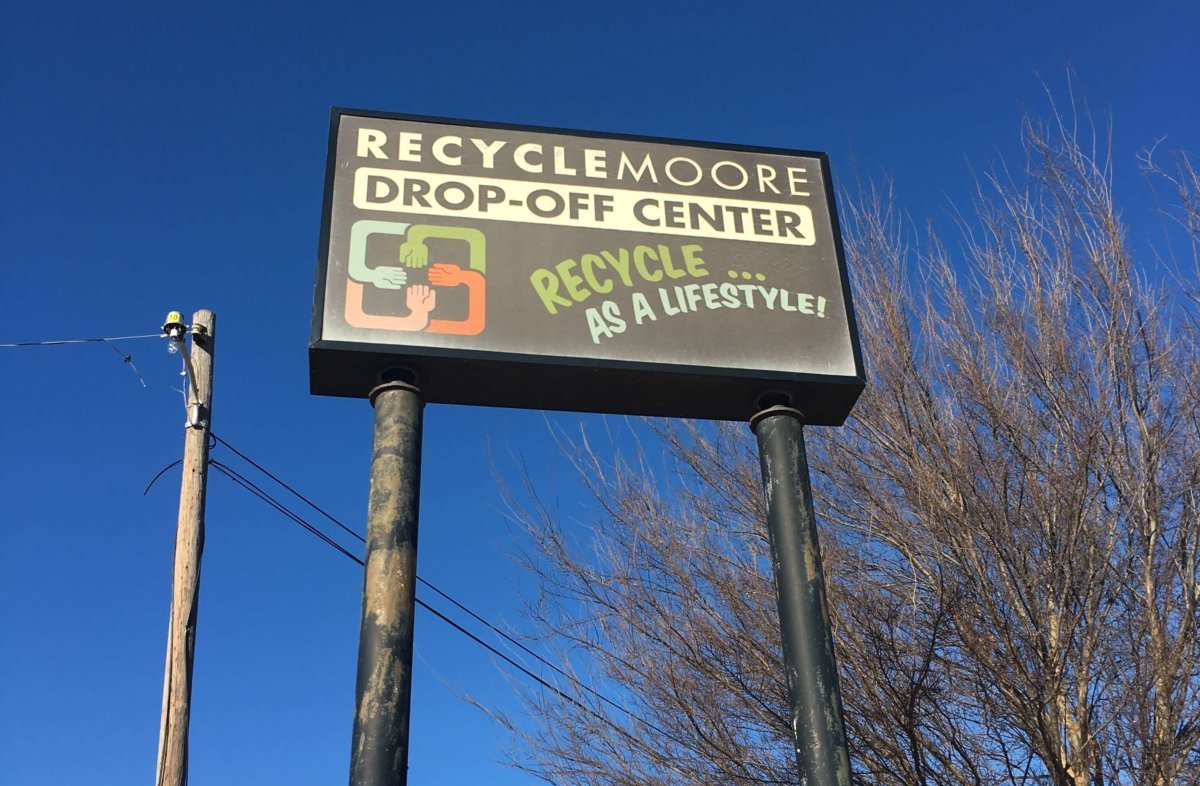
Leslie Bonebreak, a Moore resident and environmental activist who ran for the Oklahoma Legislature last year, worked to promote the proposition in 2016.
“I think the big problem with Proposition 2 in 2016 was that citizens were not educated properly by the city,” Bonebreak said.
She said citizens were worried about the price, cart size and Recycle Moore, the city’s recycling center. Recycle Moore is a source of jobs, and some residents worried it would close, potentially leaving people unemployed, Bonebreak added.
Open since 2012, Recycle Moore accepts most plastics, aluminum, tin, paper, cardboard, and cell phone and rechargeable batteries.
The center takes many types of recyclables, but some citizens still aren’t satisfied.
“I wish they had a recycling center that accepts everything,” said Moore resident Terri Walsh. “I couldn’t find anywhere in Oklahoma that accepts glass.”
Moore’s 2016 proposed curbside program would have accepted plastic, glass, aluminum, tin and paper.
Mitchell said he recognizes that some residents want more.
“I know there is still a lot of interest in curbside recycling, and it is something we’re continuing to look at,” Mitchell said. “However, for the time being, our efforts are focused on the recycling center we have.”
But for the moment, he said, the issue seems settled.
China changes recycling markets
Mike Harlan, the city’s environmental services manager who also runs Recycle Moore, considers recycling issues from a business standpoint.
“I think we’re at the capacity of what we could do, just because recycling is such a commodity,” Harlan said. “There’s not a whole lot of money being made right now in recyclables.”
China used to be one of the world’s biggest buyers of recyclables, but that changed in 2018. CBS News has documented how China’s new policy requires recyclable materials to be 99.5 percent free of contaminants, which is difficult for most facilities to achieve.
American companies had been earning money selling paper and plastic to Chinese companies, but after China closed its doors to contaminated waste, many American recyclers are now paying to rid themselves of items they previously sent overseas. Often, these materials end up in landfills unbeknownst to citizens who believe their waste is being recycled. National reports have noted that smaller recycling facilities are at risk of shutting down, and even the biggest ones in the country are quickly losing revenue.
This is not just a problem for facilities like Recycle Moore. A curbside program would face a greater challenge. Single-stream recycling has to be sorted out after pickup, and the risk of contamination rises as people throw their unwashed cans and bottles in with their otherwise recyclable cardboard. Paired with lower prices in general, this added waste can lead to even lower profitability in the recycling industry.
Moore curbside recycling proposal ‘will come up again’
In Moore, the city feels the effect of low commodity prices within its existing recycling program. Without a curbside program, individual citizens do not.
One reason the proposition failed is the belief that the financial burden would fall on their shoulders, Bonebreak said. The 2016 program came with a $3 price tag, but she said some citizens worried that the price might skyrocket.
“A cap on the monthly cost at $3 max for five to 10 years would have made residents more comfortable,” Bonebreak said.
Like Bonebreak, some Moore residents still have curbside recycling on their minds.
“I will get an occasional phone call, or every now and then someone will come to a council meeting and speak at the public participation part of the meeting and mention curbside recycling,” Mitchell said. “It was a close vote last time, and since it was a close vote, it will come up again.”












